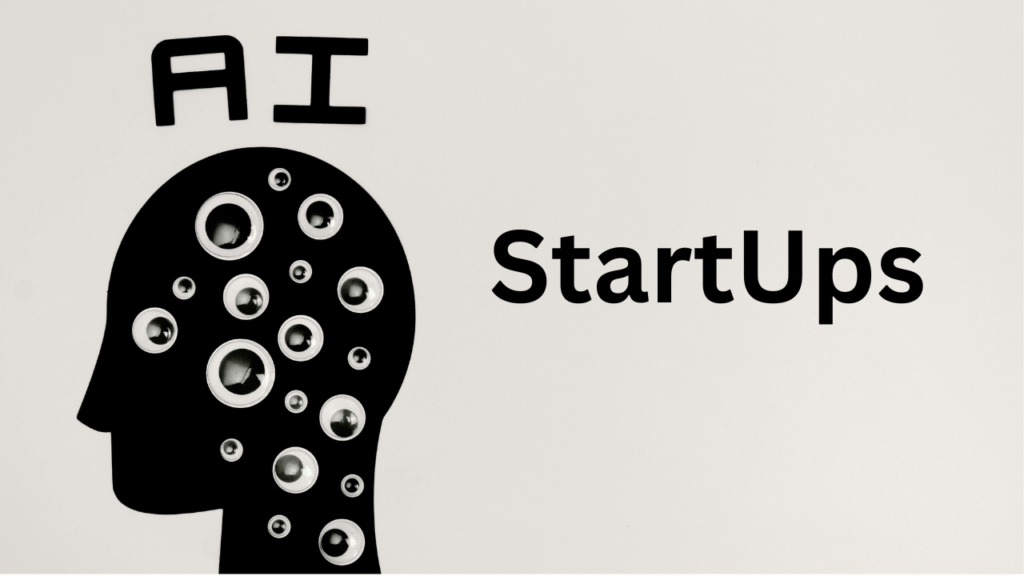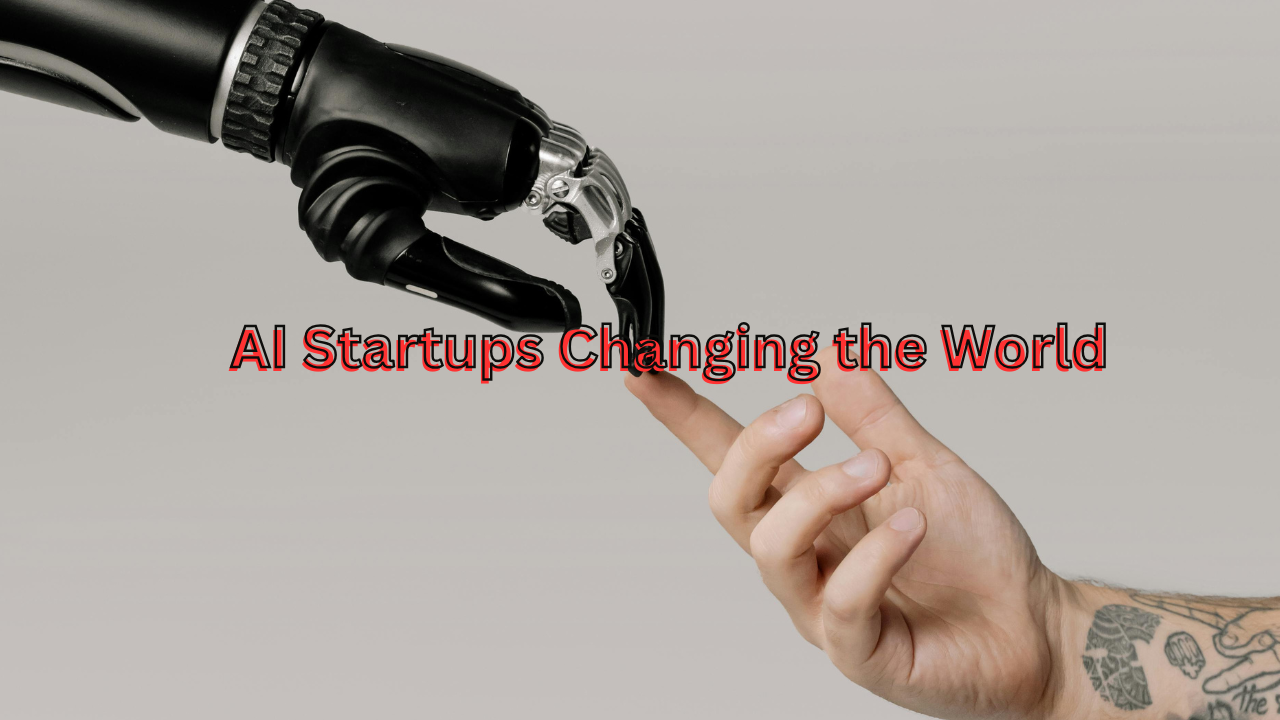When most people hear “artificial intelligence,” they picture gleaming office towers in Silicon Valley, bustling tech parks in Bangalore, or research labs in Beijing. But what if some of the most meaningful and life-changing AI innovations weren’t coming from these well-known tech hubs? What if they were being built in places you’d never expect — rural India, the hills of Rwanda, or the streets of Lagos?
Across the world, passionate entrepreneurs are using AI not just to make a profit, but to solve real human problems — and they’re doing it in places with limited resources, where innovation isn’t just clever, it’s necessary. From revolutionizing healthcare in remote villages to transforming waste into clean energy, these “under-the-radar” startups are quietly reshaping our world.
Let’s take a look at some of the most inspiring examples.

AI Startups Changing the World
AI in Healthcare: Life-Saving Innovation in Remote Communities
Access to quality healthcare is something many of us take for granted — but in vast regions of the world, it’s a daily struggle. Doctors are few and far between, medical equipment is outdated, and diagnostics can take days or weeks. But AI is starting to turn the tide.
Qure.ai (India) – Diagnosing Illness with the Help of AI
In Mumbai, a group of engineers and doctors had a bold idea: what if AI could read medical scans just like a radiologist? Today, Qure.ai is doing exactly that. Their AI models can analyze chest X-rays and head CT scans in seconds, flagging everything from tuberculosis to brain hemorrhages. It’s already being used in over 50 countries, helping frontline health workers make faster, more accurate diagnoses — even when specialists are hours away.
Imagine a small village clinic in India or Nigeria. No radiologist. A patient comes in with chest pain. Thanks to Qure.ai, a nurse can upload an X-ray and get an AI-powered report in minutes. That’s not just convenience — that’s a life potentially saved.
Zipline (Rwanda) – Drones Delivering Hope
In Rwanda, something amazing is happening in the skies. Zipline, a company founded in the U.S. but deeply rooted in African health infrastructure, is using autonomous drones to deliver medical supplies across rough and mountainous terrain. Think blood transfusions, vaccines, and emergency medications — all flown by AI-guided drones to hospitals that would otherwise wait hours or days.
Since launching, Zipline has completed over 500,000 deliveries, saving thousands of lives and proving that even small nations can lead the way in high-tech healthcare solutions.
AI in Finance: Opening Doors for the Unbanked
In many developing countries, financial services still feel like a luxury. Banks are too far, the paperwork is too much, or people simply don’t have the formal credit histories required to access loans. But AI is helping break down those barriers.
Kudi (Nigeria) – Chatting Your Way to a Better Life
In Nigeria, a company called Kudi (which means “money” in Hausa) realized something smart: most people may not have banking apps, but they do have access to simple messaging platforms. So, they built AI-powered chatbots that let users send money, pay bills, and even top up mobile data — all through basic text conversations.
What sounds simple is actually powerful. It means farmers, market vendors, and everyday people can now access financial services without needing a smartphone or even walking into a bank. It’s fintech with a human face — and it’s changing lives.
CredoLab (Singapore) – Rethinking What Makes You Creditworthy
Meanwhile, CredoLab in Singapore took a different approach. Instead of judging someone based on a credit report they may not even have, their AI analyzes mobile phone data — like app usage, call patterns, and bill payments — to build an “alternative” credit score. It’s privacy-conscious, non-intrusive, and opens the financial system to millions of people who’ve been excluded for years.
Now, a small business owner in the Philippines or a delivery rider in Indonesia can apply for a loan based on how responsibly they use their phone. It’s inclusive innovation at its best.
AI in Sustainability: Fighting Climate Change from the Ground Up
The climate crisis is overwhelming — but in every corner of the world, local startups are building AI tools to fight back. From reducing waste to helping farmers grow smarter, they’re proving that small ideas can lead to big environmental wins.
Blue River Technology (USA) – Smarter Farming, Less Waste
You wouldn’t expect a tractor to be “smart,” but Blue River Technology, based in California, is making them exactly that. Their AI-powered system, “See & Spray,” uses computer vision to detect weeds and only spray pesticides where needed — not across the whole field.
This saves money, cuts down on harmful chemicals, and boosts crop yields. While the company is American, their technology is being adopted in places like India, Brazil, and sub-Saharan Africa — where efficient farming is the key to food security.
Takachar (Kenya) – Turning Trash into Treasure
In Kenya, a young engineer named Kevin Kung co-founded Takachar, an AI-enabled startup that turns agricultural waste into biofuels and fertilizer. Their mobile system is designed for rural farmers, allowing them to convert crop residues — which are often burned, causing pollution — into something valuable.
It’s a win-win: cleaner air, extra income, and sustainable energy, all thanks to a clever AI-powered process that works right on the farm.
Why These Startups Matter More Than Ever
What ties all these stories together? It’s not just clever technology — it’s deep empathy. These startups understand their local communities and are solving problems with real impact, not just sleek apps or billion-dollar valuations.
And they’re able to do this thanks to a global shift: cloud computing, open-source AI tools like TensorFlow and PyTorch, and access to international funding mean that you don’t need to be in San Francisco to build world-changing tech.
Governments, investors, and development organizations are taking notice, too — and beginning to support this next wave of innovators from the Global South.
Conclusion: The Future of AI is Global
The next big AI breakthrough might not come from Google or OpenAI — it might come from a dusty village in Uganda or a startup hub in Dhaka. And that’s a good thing. Because when we open up the stage to more voices, more cultures, and more ideas, we get solutions that are more human, more equitable, and more inspiring.
So next time someone says AI is just a Silicon Valley buzzword, tell them about Qure.ai, Zipline, or Takachar. Tell them that the future of AI isn’t just smart — it’s diverse, surprising, and deeply human.



Your point of view caught my eye and was very interesting. Thanks. I have a question for you. https://accounts.binance.info/zh-TC/register-person?ref=DCKLL1YD
Can you be more specific about the content of your article? After reading it, I still have some doubts. Hope you can help me.
Your article helped me a lot, is there any more related content? Thanks! https://www.binance.com/register?ref=IXBIAFVY
Thanks for sharing. I read many of your blog posts, cool, your blog is very good.
Thanks for sharing. I read many of your blog posts, cool, your blog is very good. https://accounts.binance.com/register-person?ref=IXBIAFVY
Your point of view caught my eye and was very interesting. Thanks. I have a question for you. https://accounts.binance.info/ar-BH/register-person?ref=S5H7X3LP
Thanks for sharing. I read many of your blog posts, cool, your blog is very good. https://accounts.binance.com/el/register?ref=DB40ITMB
Can you be more specific about the content of your article? After reading it, I still have some doubts. Hope you can help me. https://www.binance.com/ar/register?ref=FIHEGIZ8